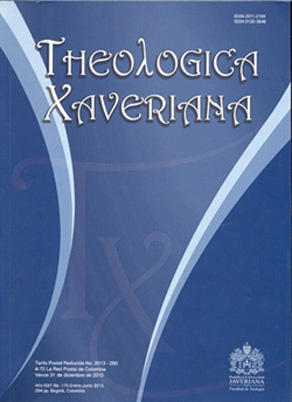Abstract
This paper aims at presenting an ethic-theological approach to a serious violation of fundamental human rights: human trafficking. The eyes of faith show us that giving people a condition of merchandise in the 21st century implies the sin of idolatry of wealth. Overcoming this crime against humanity underpins the ethical decision of listening to the victims claims (Levinas). The Church does not only see the victims’ faces but also God’s glory shining in them. Inspired by Jesus, she supports those who are neglected and suffer from injustice.
This journal is registered under a Creative Commons Attribution 4.0 International Public License. Thus, this work may be reproduced, distributed, and publicly shared in digital format, as long as the names of the authors and Pontificia Universidad Javeriana are acknowledged. Others are allowed to quote, adapt, transform, auto-archive, republish, and create based on this material, for any purpose (even commercial ones), provided the authorship is duly acknowledged, a link to the original work is provided, and it is specified if changes have been made. Pontificia Universidad Javeriana does not hold the rights of published works and the authors are solely responsible for the contents of their works; they keep the moral, intellectual, privacy, and publicity rights.
Approving the intervention of the work (review, copy-editing, translation, layout) and the following outreach, are granted through an use license and not through an assignment of rights. This means the journal and Pontificia Universidad Javeriana cannot be held responsible for any ethical malpractice by the authors. As a consequence of the protection granted by the use license, the journal is not required to publish recantations or modify information already published, unless the errata stems from the editorial management process. Publishing contents in this journal does not generate royalties for contributors.


